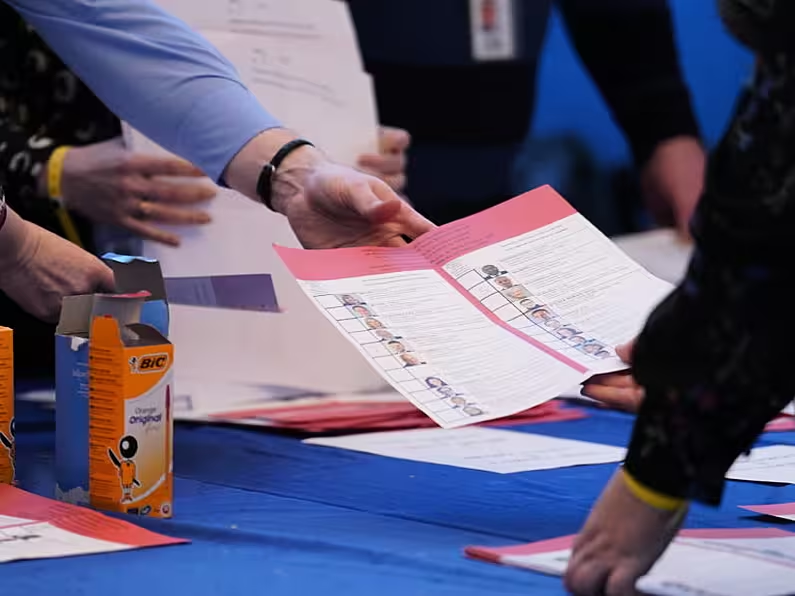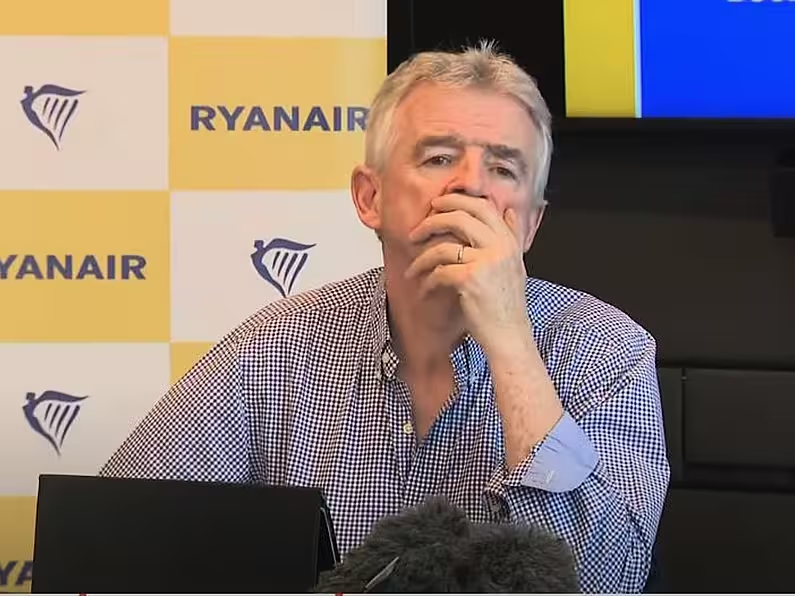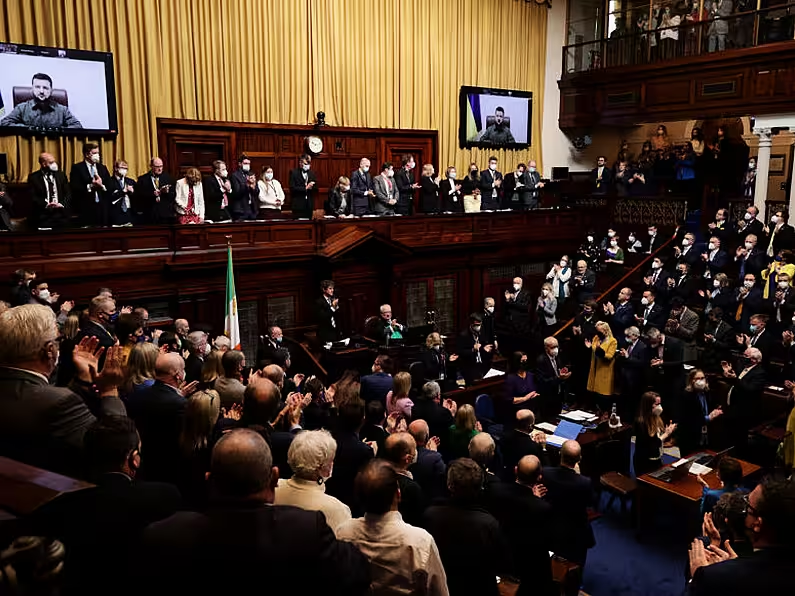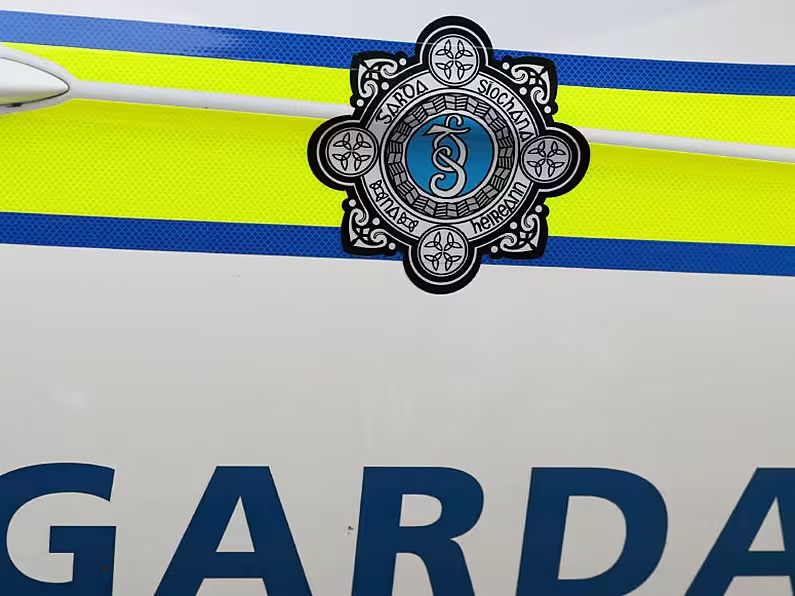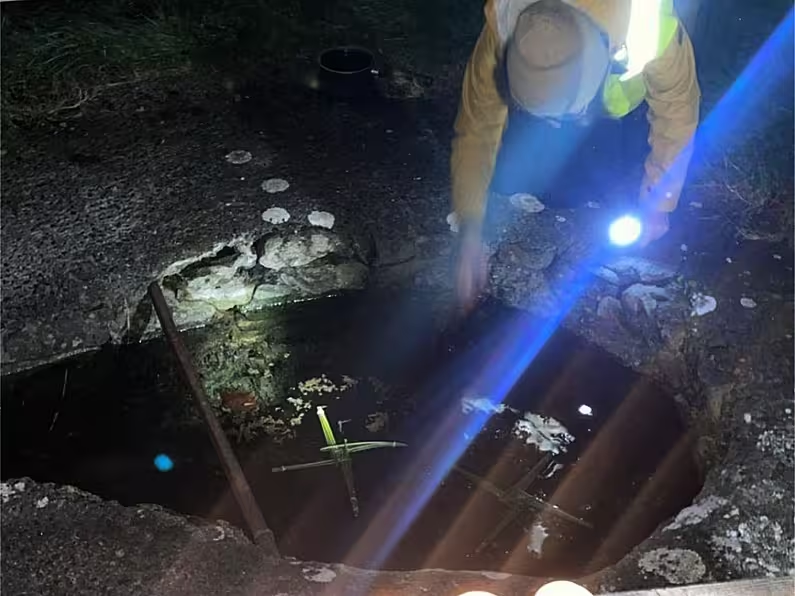By Michelle Devane, PA
The Government is “likely” to miss its target of 80 per cent of Ireland’s adult population receiving at least one dose of a Covid-19 vaccine by the end of June due to supply issues, the Tánaiste said.
However, Leo Varadkar told the Dáil that if the target is missed it will only be by “a few weeks”.
His comments came after Health Minister Stephen Donnelly said it is “unclear” whether the Government will be able to reach its target due to “serious concerns” over the supply of the Janssen vaccine.
During Leaders’ Questions, Mr Varadkar described the vaccination programme as going “really well”, adding that supply is the “only constraint”.
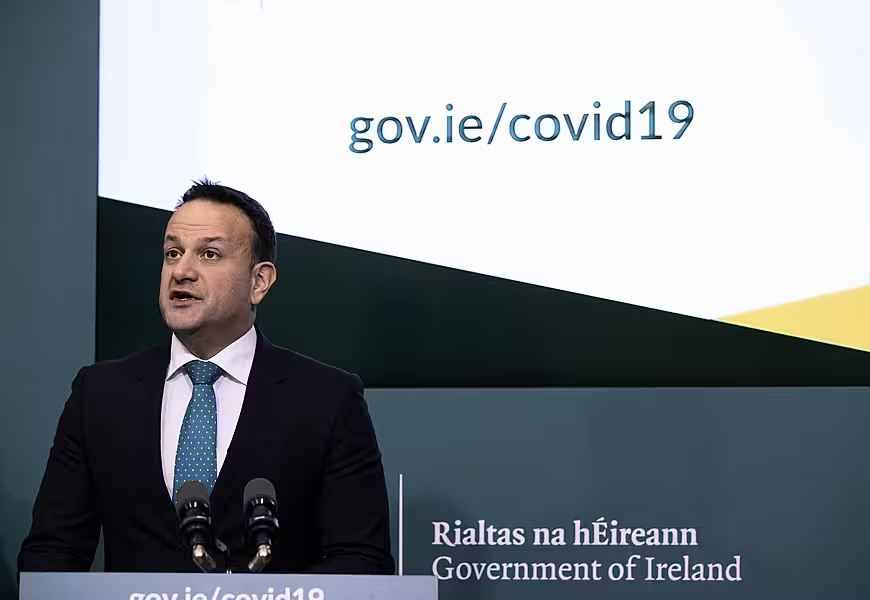
The Fine Gael leader said the target has “always been subject to supplies arriving on time”.
“If the supplies do not arrive on time, well, then there is a risk that we will miss those targets, and that does now appear to be likely,” Mr Varadkar said.
“But if we do miss the target, it will be because of factors beyond our control – and that is the supplies of the vaccine.”
He said revised targets will be outlined on Friday.
“If we do miss targets, I think we’ll only miss them by a few weeks because orders that were expected to arrive at the end of June now might arrive in early July,” he added.
“We are able to vaccinate 300,000 to 400,000 a week, so once we get them we’ll get them out.”
Mr Varadkar also said that the people of Ireland have every reason to be hopeful about the summer ahead.
“We are ahead of ourselves in terms of where we thought we would be in terms of hospitalisations and cases,” he said.
“For that reason we can look forward to a very positive announcement on Friday in relation to the reopening of our society and our economy and the phased return to international travel and events.”
A truly national effort. Despite the challenges with supply and the criminal attack on IT systems, by the end of this week we will have half our adult population with at least one dose of a COVID-19 vaccine. @HSELive @AmbulanceNAS @defenceforces #ForUsAll pic.twitter.com/dptUeSHgQi
— Stephen Donnelly (@DonnellyStephen) May 27, 2021
The Government is due to announce a further easing of Covid-19 restrictions on Friday.
He made the remarks in response to Labour leader Alan Kelly, who said the Health Minister had dropped a “bombshell” earlier in the Dáil when it came to vaccine delivery.
On Thursday morning, Mr Donnelly said it is “unclear” whether the Government will be able to reach its target of vaccinating 80 per cent of the population by the end of June, due to supply issues.
He also told TDs there are “serious concerns” over the supply of the Janssen vaccine in the coming weeks.
“It looks like we’re going to get a significant under-delivery on Janssen and there are question marks as to what’s going to come in from AstraZeneca,” the Wicklow TD said.
Ireland was due to receive 470,000 doses of the Janssen vaccine, made by Johnson & Johnson, in June.
But the minister said the best-case scenario now is that around half of the doses — about 235,000 — will be delivered. In the worst-case scenario the figure could be “as low as around 60,000”.
In total, Mr Donnelly said, more than 2.44 million doses of vaccines are due to be delivered next month, including 1.42 million Pfizer doses, about 476,000 Janssen doses, some 365,000 AstraZeneca doses and 176,000 Moderna doses.
The minister added that it is “not possible” at this point to give an accurate estimation of how many will actually be delivered and that it is a cause of “ongoing concern”.
Mr Donnelly also told the Dáil he is “delighted to share” that half of Ireland’s adult population will have received at least one Covid-19 vaccination by the end of this week.
Some 280,000 doses will be given this week, following a record 300,000 doses being administered last week.
To date, more than 2.5 million doses of vaccine have been administered.
“It’s a wonderful thing to think that, in the dark and brutal year that this country has faced, that by the end of this weekend half our adult population will have received at least one dose of the Covid-19 vaccine,” he added.
#COVIDVaccine registration is open for people aged 45 to 69. The quickest & easiest way to register is online. You'll need your PPSN, Eircode, mobile phone number & email address.
💻 https://t.co/nTNxEKexNZ
📞 You can also call us on 1850241850 #ForUsAll pic.twitter.com/FWh4WZXLnl— HSE Ireland (@HSELive) May 25, 2021
The minister thanked the thousands of healthcare workers involved in the administration of the vaccination programme on behalf of the Government.
He said the Health Service Executive (HSE) will announce details in the coming days of when people aged 40 to 44 will be able to register for their jab.
At present people aged between 45 and 69 can register through the HSE’s online portal to receive a vaccination.
Mr Donnelly said more than 89 per cent of people aged between 60 and 69 have received at least one dose of a vaccine.
In the 50-59 age group, he said the registration rate is more than 86 per cent and “growing all the time”, with more than 70% having received their first dose.
He added that almost 100 per cent of people aged 70 and over are now fully vaccinated.

The minister also said the vaccination programme will be sticking to a 12-week interval between AstraZeneca doses, despite concerns over the efficacy of one dose against the Indian variant of the virus.
He said officials had considered shortening the interval between doses but decided against it.
“We did discuss 12 weeks versus eight weeks as per the UK but, as I said earlier on, the second doses are already committed, having moved from 16 to 12 weeks,” he said.
Asked whether they had considered giving AstraZeneca recipients the Pfizer or Moderna vaccine for their second dose to speed up the administration of jabs, Mr Donnelly said: “There has been no suggestion that we would switch out the second AstraZeneca dose for, say, one of the mRNA vaccines.
“At this point, all of the vaccines we have are committed to the various age cohorts that have opened up. The first dose scheduled and then the second dose planned afterwards.”







